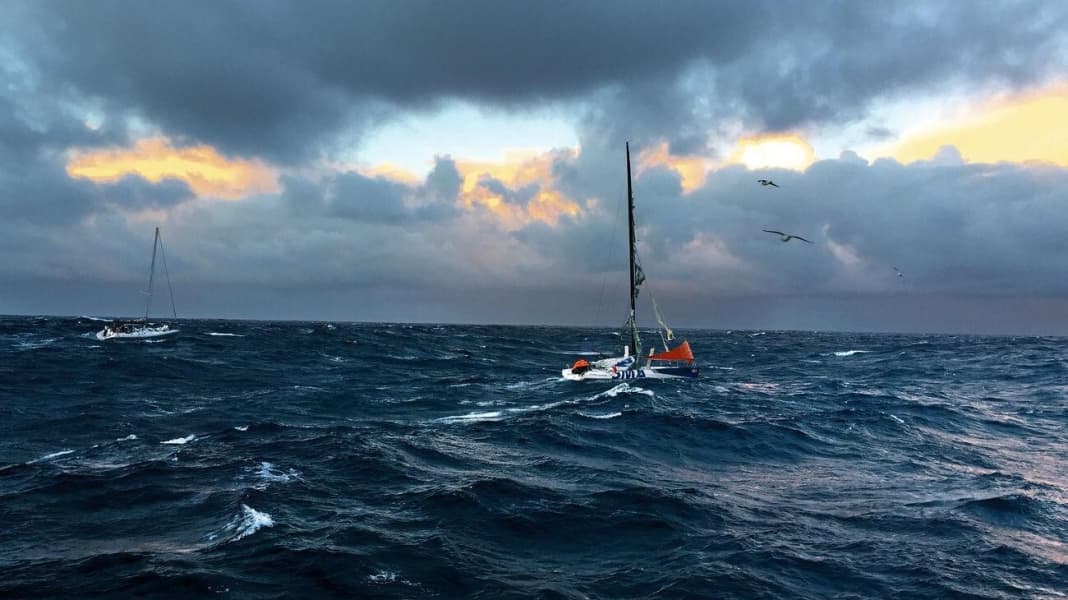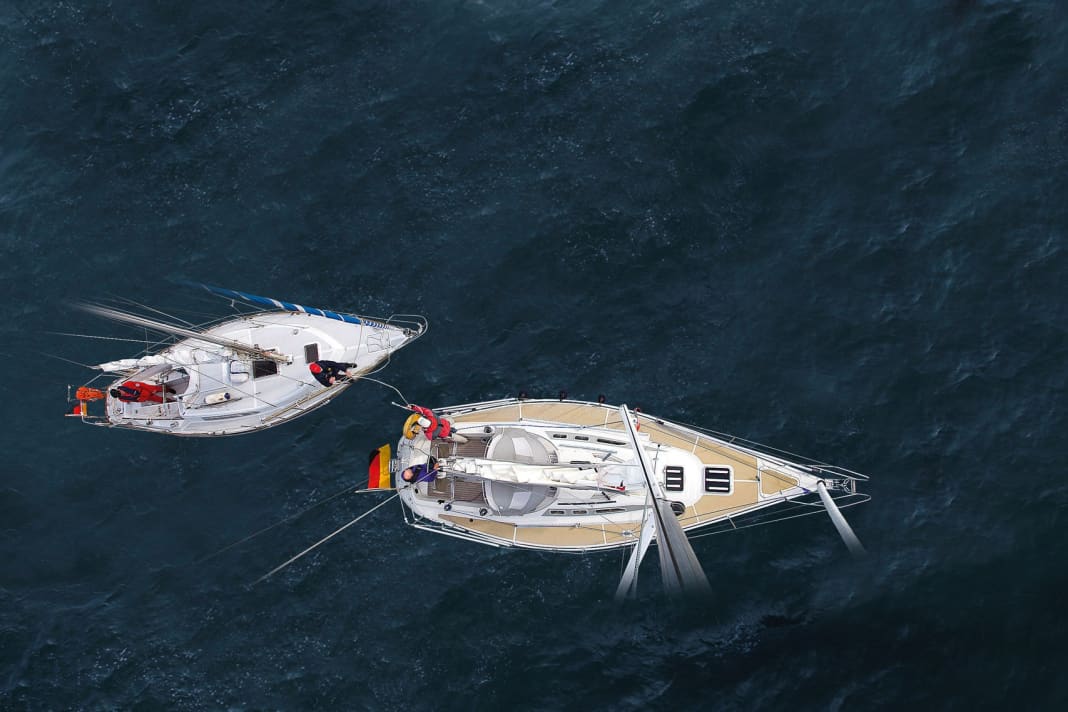
What to do when the tug and tow reaches the harbour from the sea? There is little space here, the manoeuvres have to be quicker; on the other hand, there is no disturbing swell.





Parallel towing is a suitable method for providing assistance to another yacht in a very controlled manner. The tug can directly influence the movements of the towed vessel. Therefore, when close to the harbour or in the outer harbour, you should switch from towing with the hawser to parallel towing. The towed vessel can then be manoeuvred directly to a berth instead of having to hope that the rest of the journey will reach the jetty with the hawser cast off. When parallel towing, it is important to have a very good fendering between the boats. Because of the risk of damage, it is hardly suitable in heavy seas, especially with two sailing yachts, where there is a risk of the rigs colliding.
Communication in the towing unit
If normal communication via VHF is disrupted or one party has no device, acoustic communication may be impossible due to wind or engine noise. A few hand signals provide clarity. The most important symbols and their meanings in the picture gallery.






What does a salvage cost?
When in doubt: too much! YACHT legal expert Dr Heyko Wychodil warns against this:

"Outside help can be expensive. That is why it is important to know when the towing party's claims arise and who has to pay for them. The definition of recovery is crucial here. This is because recovery costs can only be claimed if it was a recovery. Mutual assistance in the context of good seamanship, such as towing in a calm or in the event of a fuel shortage, is not considered salvage. This requires a maritime emergency, i.e. there must have been serious danger to the crew, ship, cargo or environment.
In some cases, there is still an incorrect legal opinion that a salvage operation does not take place if the skipper hands over his own line to the towing vessel. In the past, this actually made the difference between "assistance" and "salvage", but this no longer exists in current salvage law.
It is therefore irrelevant for the legal definition who hands over the line in an emergency, it is always a rescue. The handover of the line only becomes relevant when determining the amount of the salvage reward.
This is because the rescuer is entitled to this under international law. This is regulated in order to encourage him to come to the rescue. The amount of the salvage reward is based on a catalogue of criteria (§ 743 HGB). Among other things, it depends on the value of the salvaged ship, the nature and seriousness of the danger, the time spent and the costs or losses incurred, as well as the suitability of the rescuer's equipment.
When calculating the salvage reward, it is therefore important not to leave the control on board the stricken vessel to the rescuer. It may be important to have handed over the line yourself, as this would be proof of your own activity. Moreover, a salvage reward can only be demanded if the salvage operation has been successful, i.e. assets have been saved. People do not count as assets in this sense. Under no circumstances should salvage contracts be concluded with professional helpers or rescuers from the professional shipping industry in this specific situation. As a rule, such contracts contain provisions that are unfavourable to international agreements. You should also not provide any information on the value of the ship when asked by the rescuer."
